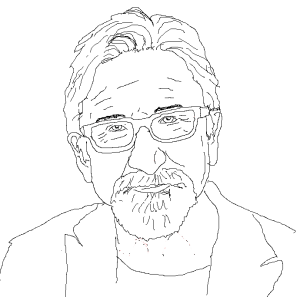 Ned Block has produced a meaty discussion for The Encyclopedia of Cognitive Science on Philosophical Issues About Consciousness.
Ned Block has produced a meaty discussion for The Encyclopedia of Cognitive Science on Philosophical Issues About Consciousness.
There are special difficulties about writing an encyclopedia about these topics because of the lack of consensus. There is substantial disagreement, not only about the answers, but about what the questions are, and even about how to frame and approach the subject of consciousness at all. It is still possible to soldier on responsibly, like the heroic Stanford Encyclopedia of Philosophy, doing your level best to be comprehensive and balanced. Authors may find themselves describing and critiquing many complex points of view that neither they nor the reader can take seriously for a moment; sometimes possible points of view (relying on fine and esoteric distinctions of a subtlety difficult even for professionals to grasp), that in point of fact no-one, living or dead, has ever espoused. This can get tedious. The other approach, in my mind, is epitomised by the Oxford Companion to the Mind, edited by Richard Gregory, whose policy seemed to be to gather as much interesting stuff as possible and worry about how it hung together later, if at all. If you tried to use the resulting volume as a work of reference you would usually come up with nothing or with a quirky, stimulating take instead of the mainstream summary you really wanted; however, it was a cracking read, full of fascinating passages and endlessly browsable.
Luckily for us, Block’s piece seems to lean towards the second approach; he is mainly telling us what he thinks is true, rather than recounting everything anyone has said, or might have said. You might think, therefore, that he would start off with the useful and much-quoted distinction he himself introduced into the subject: between phenomenal, or p-consciousness, and access, or a-consciousness. Here instead he proposes two basic forms of consciousness: phenomenality and reflexivity. Phenomenality, the feel or subjective aspect of consciousness, is evidently fundamental; reflexivity is reflection on phenomenal experience. While the first seems to be possible without the second – we can have subjective experience without thinking about it, as we might suppose dogs or other animals do – reflexivity seems on this account to require phenomenality. It doesn’t seem that we could have a conscious creature with no sensory apparatus, that simply sits quietly and – what? Invents set theory, perhaps, or metaphysics (why not?).
Anyway, the Hard Problem according to Block is how to explain a conscious state (especially phenomenality) in terms of neurology. In fact, he says, no-one has offered even a highly speculative answer, and there is some reason to think no satisfactory answer can be given. He thinks there are broadly four naturalistic ways you can go: eliminativism; philosophical reductionism (or deflationism); phenomenal realism (or inflationism); or dualistic naturalism. The third option is the one Block favours.
He describes inflationism as the belief that consciousness cannot be philosophically reduced. So while a deflationist expects to reduce consciousness to a redundant term with no distinct and useful meaning, an inflationist thinks the concept can’t be done away with. However, an inflationist may well believe that scientific reduction of consciousness is possible. So, for example, science has reduced heat to molecular kinetic energy; but this is an empirical matter; the concept of heat is not abolished. (I’m a bit uncomfortable with this example but you see what he’s getting at). Inflationists might also, like McGinn, think that although empirical reduction is possible, it’s beyond our mental capacities; or they might think it’s altogether impossible, like Searle (is that right or does he think we just haven’t got the reduction yet?).
Block mentions some leading deflationist views such as higher-order theories and representationism, but inflationists will think that all such theories leave out the thing itself, actual phenomenal experience. How would an empirical reduction help? So what if experience Q is neural state X? We’re not looking for an explanation of that identity – there are no explanations of identities – but rather an explanation of how something like Q could be something like X, an explanation that removes the sense of puzzlement. And there, we’re back at square one; nobody has any idea.

